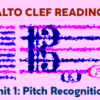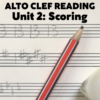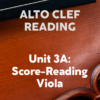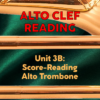The Evaluations for the 2014 June Orchestration Challenge have been uploaded to the Orchestration Online Blog page. For a massive dose of orchestration training, insights, feedback, and score-reading, I invite you to check it out for yourself. Read over all the entries, develop your inner ear in the process, and examine my own orchestration along with a thorough analysis of both my score and those of the entrants. Many thanks to all who participated, and apologies for the long wait.
2014 August Orchestration Challenge
We’ve covered Robert Schumann and Claude Debussy. Now let’s tackle Alexander Scriabin. August’s Orchestration Challenge (keep in mind there will be no July Challenge) will be to score the opening of Scriabin’s Prelude no. 9, Op. 11. The orchestra numbers allowed for this fiery excerpt are substantial: 3333 winds (standard auxiliaries allowed), 6331 brass, timpani of 5 kettles, percussion, and strings. No harp – but you won’t need it here. Percussion shall be limited to bass drum, cymbals, tam-tam, glockenspiel, and tubular bells.
This orchestra is of a size typical to Scriabin’s era, and indeed his symphonies have similar numbers. He tends to use 8 horns in some works, only four in others. I have split the difference for this challenge, as the character of the excerpt would probably not require the full double quartet. As in previous challenges, the orchestrator may interpret the source music in any style, even rewrite it to a degree, but the basic thematic and structural elements must be preserved. For those who who wish to get a grasp of Scriabin’s style, score-reading his symphonies is highly recommended, particularly his fourth, the “Poem of Ecstasy.”
This challenge is a “half-and-half” assignment. The first 8 bars will be accepted as a complete entry, for those orchestrators who wish to submit a shorter entry this round. The second eight bars have been included in the Sibelius/XML files below – BUT – these measures are only to be completed if the entrant arranges them with a fresh strategy, that develops, contrasts, or in some way significantly alters the approach of the first eight bars of orchestration! DO NOT submit a second 8 bars orchestrated EXACTLY like the first! That is something Scriabin himself would never have done, so respect him and don’t you do it either.
Ready, set, orchestrate!
Below are a variety of resources to help you get started: XML and PDF files of the piano score, and a Sibelius file already formatted for orchestra. Please note – though the original score shown above is in G# minor, these files have been transposed to G minor. It’s not recommended to score in the original key.
For best results, Mac users should option/click on thumbnails to download.









In case you don’t know about it, be aware of the excellent arrangement by the Spanish conductor Rafael Frühbeck de Burgos (http://www.youtube.com/watch?v=_VHv_tr1-XY).